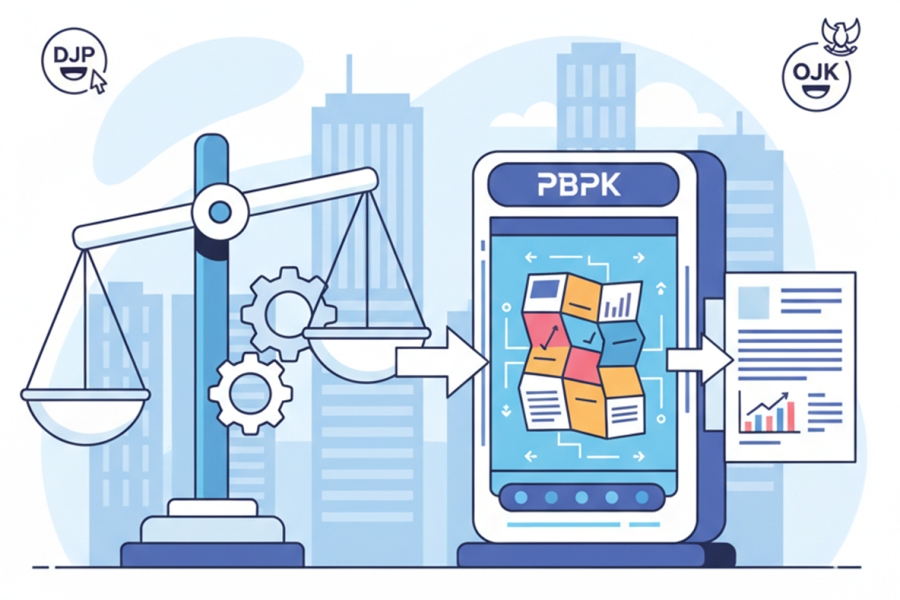
The Government officially issued Government Regulation (PP) No. 43 of 2025 concerning Financial Reporting as the legal foundation for reporting and compliance reform. Through this PP, the Government established a single-window financial reporting system as a crucial milestone in the implementation of the cooperative compliance program. The Directorate General of Taxes (DJP) sees this system realized through the development of the Joint Financial Reporting Platform (PBPK) or single window. PBPK is an electronic system for the single submission of financial statements; reporters will later submit their financial statements through this new system.
PBPK will create uniformity by minimizing discrepancies in financial reporting. The development of PBPK is carried out by the Financial Services Authority (OJK) and the DJP based on the principle of stability and development of the financial sector. PP 43/2023 and the PBPK system will create legal certainty and data equivalence. Thus, financial statements already submitted by the reporter through PBPK constitute valid and binding financial statements that can be used by ministries/agencies and financial sector authorities as users of the financial statements.
In detail, financial statements in PBPK will become a centralized information source for financial statement users in making investment decisions. Data in PBPK will also be a comparison source if there are differences in financial statements circulating among report users. On the other hand, PP 43/2025 also regulates the establishment of the Financial Statement Standards Committee to standardize the financial statements of all entities. This Committee is an independent institution, directly responsible to the President, carrying out the mandate of formulating and setting financial reporting standards. PP 43/2025 grants 5 main functions to the standards committee, including formulating and establishing strategic policies in the preparation and setting of reporting standards. The Government sees the standardization policy step as guaranteeing the consistency of financial statements across reporting entities, enhancing the credibility of private sector financial data.
In this context, Reporters obligated to present financial statements consist of two main groups. The first group includes financial sector business actors, namely institutions carrying out activities in the banking, capital market, insurance, pension fund, and financing sectors. Also included in this group are pawn companies, guarantee institutions, the Indonesian export financing institution, secondary housing financing companies, and providers of technology-based information joint funding services. Other financial sector reporters, such as financial market infrastructure business actors, business actors in the payment system, and financial sector supporting institutions (both conventional and sharia), also fall into this category.
The second group consists of parties engaging in business interaction with the financial sector. These parties include entities that perform bookkeeping (legal entities or not), individuals required to submit financial statements when interacting, and/or individuals mandated to perform bookkeeping based on the provisions of tax laws and regulations. More specifically, interacting parties include banking debtors, financing company or institution debtors, issuers in the capital market, and other parties engaged in business interaction. The Director General of Taxes also expects taxpayers to demonstrate a high level of compliance through the utilization of the ease of new services regulated in this regulation.
The PBPK reporting system and the Standards Committee are highly important for business actors because they reduce reporting duplication and increase the efficiency of compliance administration. Investors gain significant benefits from more standardized and credible financial data, supporting investment decision-making based on accurate information. For the Tax Authority, this integrated system provides a comprehensive database, greatly facilitating precise supervision and the excavation of tax potential. The availability of such accurate data enhances taxation fairness because the authority can identify taxpayers engaging in avoidance practices more quickly, ensuring every entity pays its tax obligations according to its actual economic profile. The general public also feels a positive impact through increased transparency of corporate financial data, simultaneously encouraging the creation of a more stable and trustworthy financial sector ecosystem. This policy directly encourages higher compliance levels for taxpayers and financial sector business actors.
The implementation of PP 43/2025, which includes reporting standardization through the Standards Committee and the integrated PBPK reporting system, affirms the Government's seriousness in improving administrative governance and compliance in the financial sector. Market players and the public must understand that the integration of reporting and data standardization is a crucial foundation for creating a transparent and efficient business climate. Understanding the dynamics of this new regulation allows investors to make informed decisions and business actors to carry out compliance efficiently, supporting long-term economic stability.